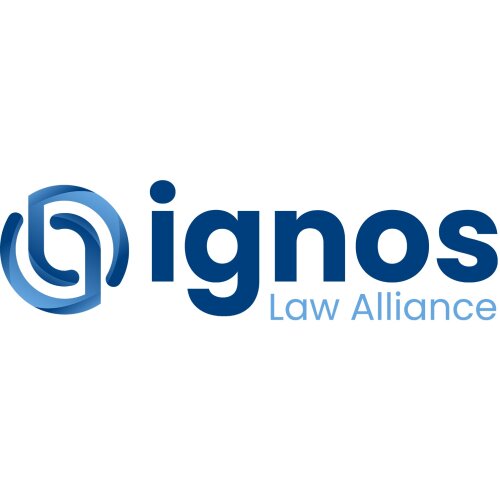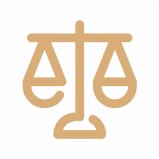Best E-commerce & Internet Law Lawyers in Jakarta
Share your needs with us, get contacted by law firms.
Free. Takes 2 min.
List of the best lawyers in Jakarta, Indonesia
About E-commerce & Internet Law in Jakarta, Indonesia
E-commerce and internet law in Jakarta, Indonesia, is a dynamic and rapidly evolving field. With the increasing penetration of internet usage and the booming e-commerce industry, legal frameworks are continuously developing to keep up with technological advancements. Key areas include digital transactions, cybersecurity, consumer protection, intellectual property rights, data privacy, and electronic contracts. The Indonesian Government, through legislations such as the Electronic Information and Transactions (EIT) Law, seeks to regulate online activities to protect consumers and businesses alike. Understanding these regulations is crucial for individuals and businesses engaged in online activities.
Why You May Need a Lawyer
Engaging a lawyer specializing in e-commerce and internet law might be necessary for several reasons. If you are involved in any form of online business, you may face challenges related to compliance with local laws and international regulations. Legal assistance might also be required when forming digital contracts, addressing data breaches, safeguarding intellectual property rights, resolving disputes concerning cyber-squatting, handling digital fraud cases, or establishing robust privacy policies. Additionally, ensuring adherence to the continually evolving laws can help prevent legal issues and protect business interests effectively.
Local Laws Overview
There are several key aspects of local laws that are paramount to e-commerce and internet activities in Jakarta, Indonesia:
- Electronic Information and Transactions Law (EIT Law): This law governs electronic information and transactions, electronic systems, and cybersecurity, aiming to enhance the safe use of internet technologies.
- Personal Data Protection Law: Enacted to regulate the collection, storage, and use of personal data, this law mandates businesses to implement robust data protection measures.
- Consumer Protection Act: Protects consumers from unfair business practices and ensures that businesses provide accurate, truthful information.
- Intellectual Property Rights: Encompasses protections for trademarks, copyrights, and patents concerning online content and products.
- Anti-Defamation Regulations: Addresses online defamation and harmful digital content, with significant consequences for violations.
Frequently Asked Questions
What is the EIT Law?
The Electronic Information and Transactions (EIT) Law is a legal framework that governs electronic communications and transactions in Indonesia, covering issues such as digital signatures, electronic contracts, and digital information evidence.
How does the Personal Data Protection Law affect my online business?
This law requires businesses to collect, process, and store personal data responsibly, ensuring consumer rights to privacy and data protection. Non-compliance could result in significant fines.
What are my rights under the Consumer Protection Act?
Consumers are entitled to accurate information, fair treatment, and redress for grievances. The act holds businesses accountable for non-compliance and deceptive practices.
What do I need to know about intellectual property rights online?
Intellectual property laws protect creations of the mind, such as inventions, literary and artistic works, designs, and symbols. Online businesses must respect these rights to avoid infringement.
How can I protect my e-commerce business from cyber threats?
Implement robust cybersecurity strategies, regularly update security protocols, comply with legal standards, and provide employee training to prevent cyber attacks and data breaches.
What constitutes online defamation?
Online defamation involves false statements made publicly in the online domain, which can harm an individual's or organization's reputation. Legal actions can be taken against individuals who engage in such behavior.
How are digital contracts regulated in Indonesia?
Digital contracts are legally recognized, provided they meet the conditions of a valid contract under Indonesian law, such as offer, acceptance, consideration, and the parties' consent.
What should I consider when selling online to international customers?
Understand international trade laws, consumer rights, and tax obligations for each country you sell to, and ensure compliance with cross-border e-commerce regulations.
Do I need a business license for an online store in Jakarta?
Yes, operating an e-commerce business typically requires a license. You must register your business with the local authority and comply with tax regulations.
How can I address negative online reviews legally?
Respond professionally to genuine reviews and seek legal advice if the reviews are false and defamatory. You can also request the platform to remove harmful content through the appropriate legal channels.
Additional Resources
Here are useful resources for those seeking legal advice in e-commerce and internet law:
- The Ministry of Communication and Information Technology of the Republic of Indonesia
- National Consumer Protection Agency (Badan Perlindungan Konsumen Nasional)
- Indonesia Cyber and Encryption Agency
- Intellectual Property Office of Indonesia
- Indonesian E-commerce Association (idEA)
Next Steps
If you are in need of legal assistance in the field of e-commerce and internet law, consider the following steps:
- Research and contact reputable law firms specializing in e-commerce and internet law in Jakarta.
- Prepare a summary of your legal needs and gather all relevant documents to discuss with your chosen lawyer.
- Consider scheduling a consultation to assess your situation and get professional advice on how to proceed.
- Stay informed by engaging with legal updates related to e-commerce and internet law, which can help prevent future legal issues.
Lawzana helps you find the best lawyers and law firms in Jakarta through a curated and pre-screened list of qualified legal professionals. Our platform offers rankings and detailed profiles of attorneys and law firms, allowing you to compare based on practice areas, including E-commerce & Internet Law, experience, and client feedback.
Each profile includes a description of the firm's areas of practice, client reviews, team members and partners, year of establishment, spoken languages, office locations, contact information, social media presence, and any published articles or resources. Most firms on our platform speak English and are experienced in both local and international legal matters.
Get a quote from top-rated law firms in Jakarta, Indonesia — quickly, securely, and without unnecessary hassle.
Disclaimer:
The information provided on this page is for general informational purposes only and does not constitute legal advice. While we strive to ensure the accuracy and relevance of the content, legal information may change over time, and interpretations of the law can vary. You should always consult with a qualified legal professional for advice specific to your situation.
We disclaim all liability for actions taken or not taken based on the content of this page. If you believe any information is incorrect or outdated, please contact us, and we will review and update it where appropriate.














